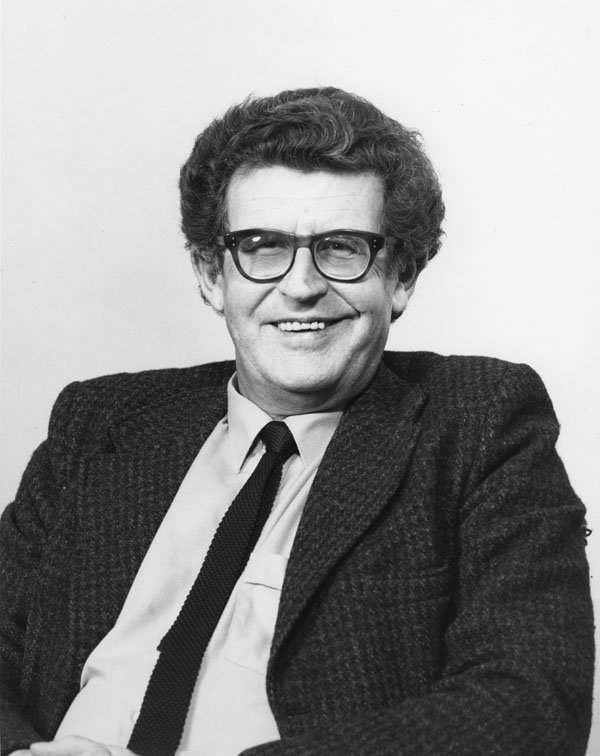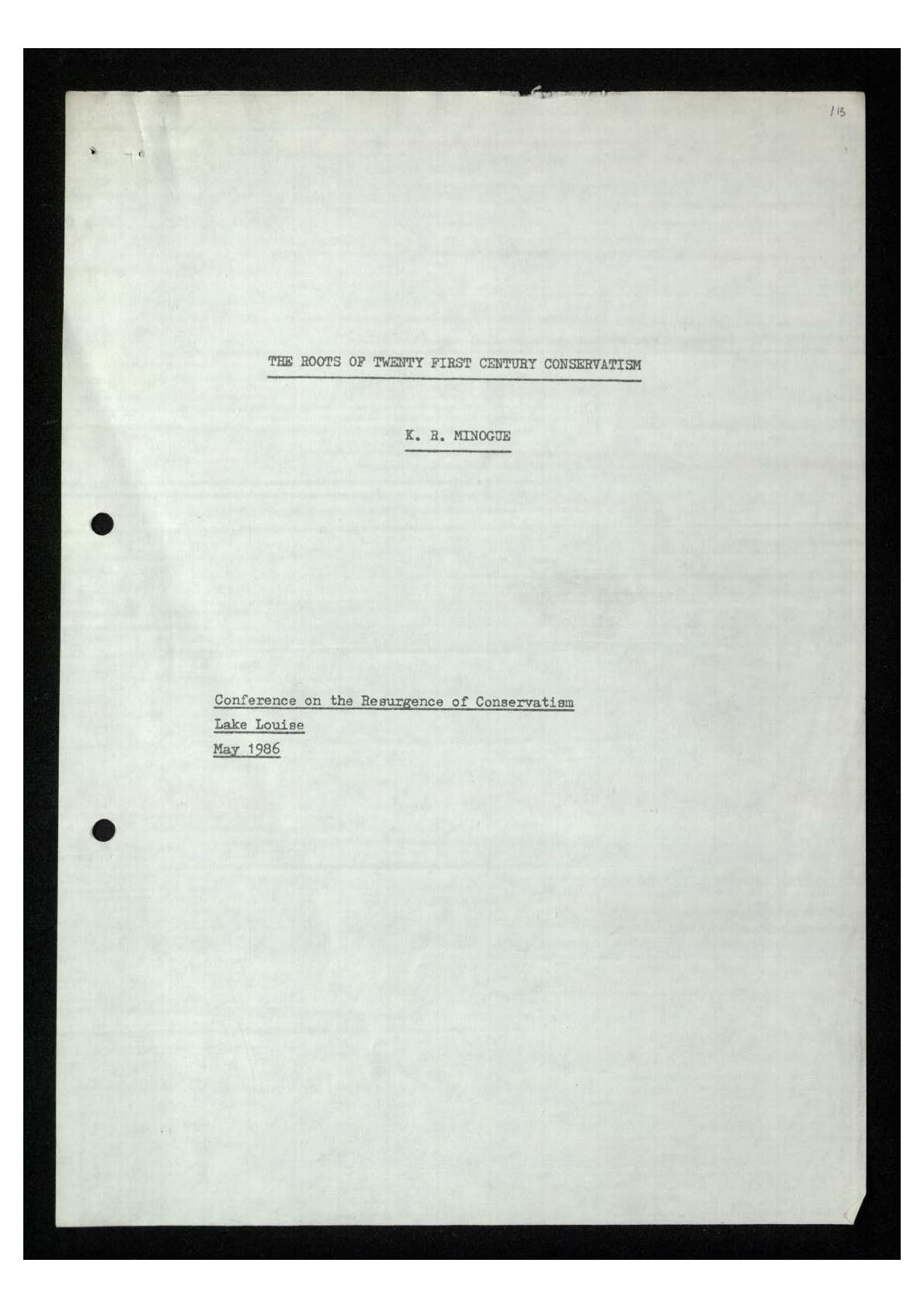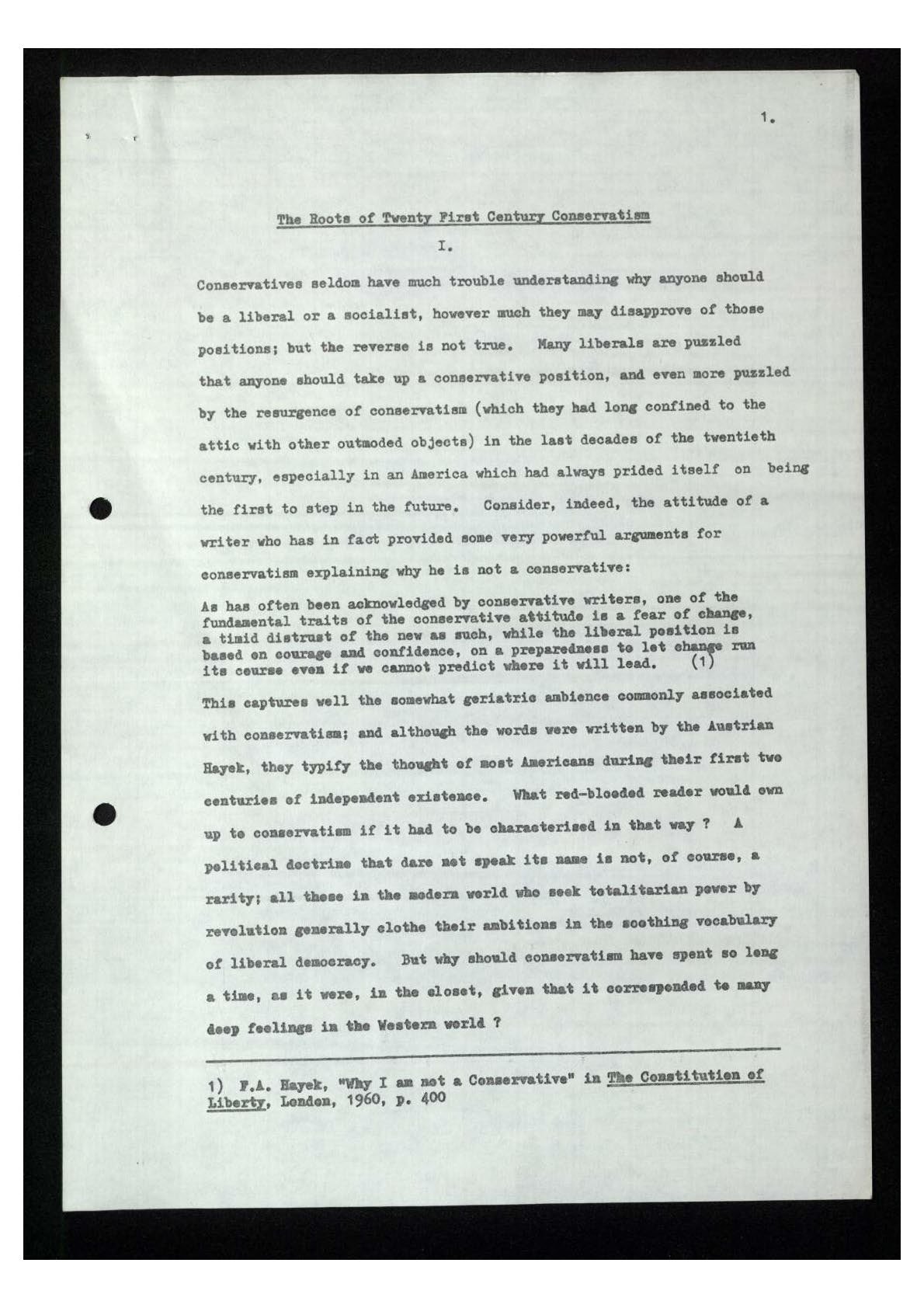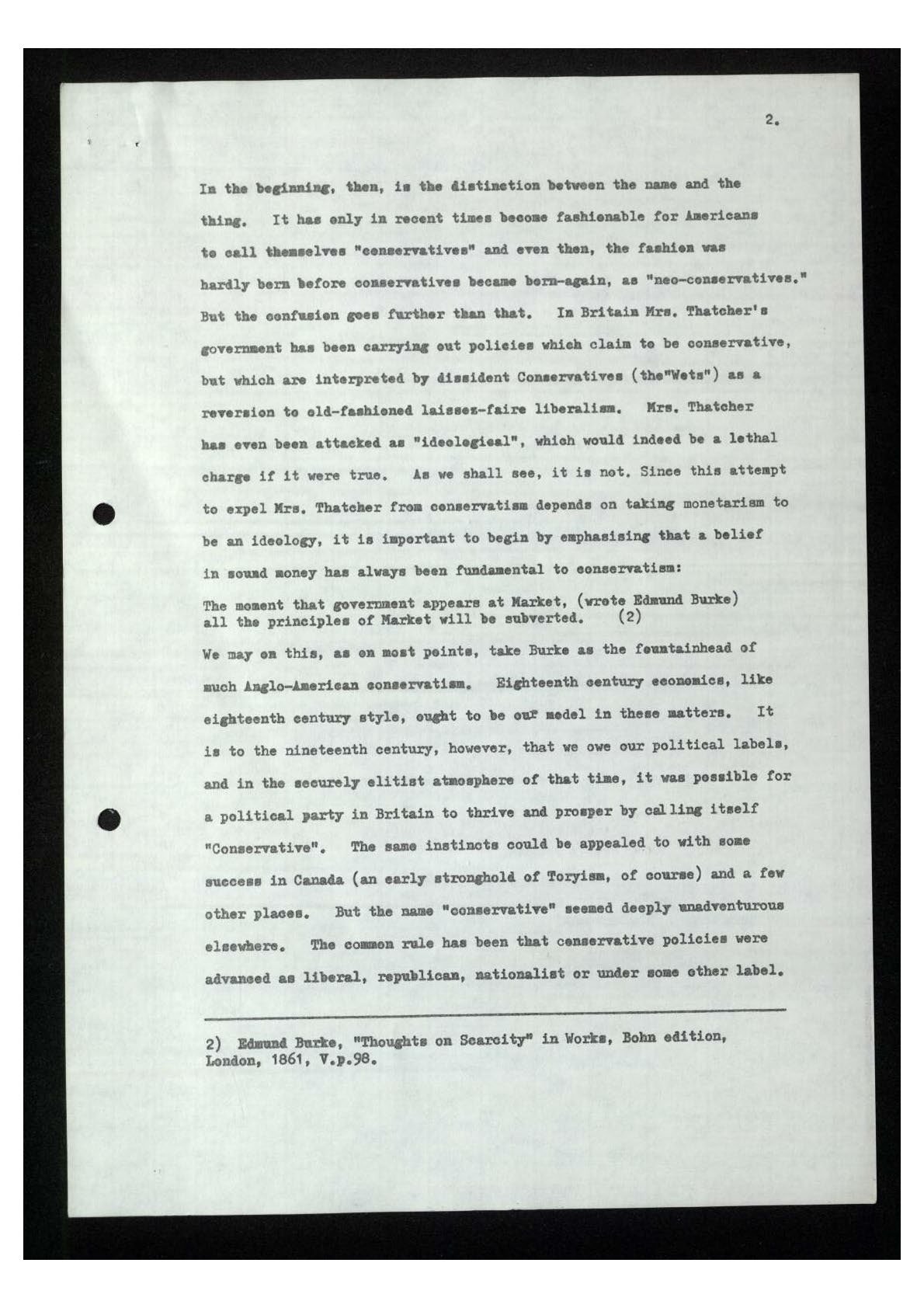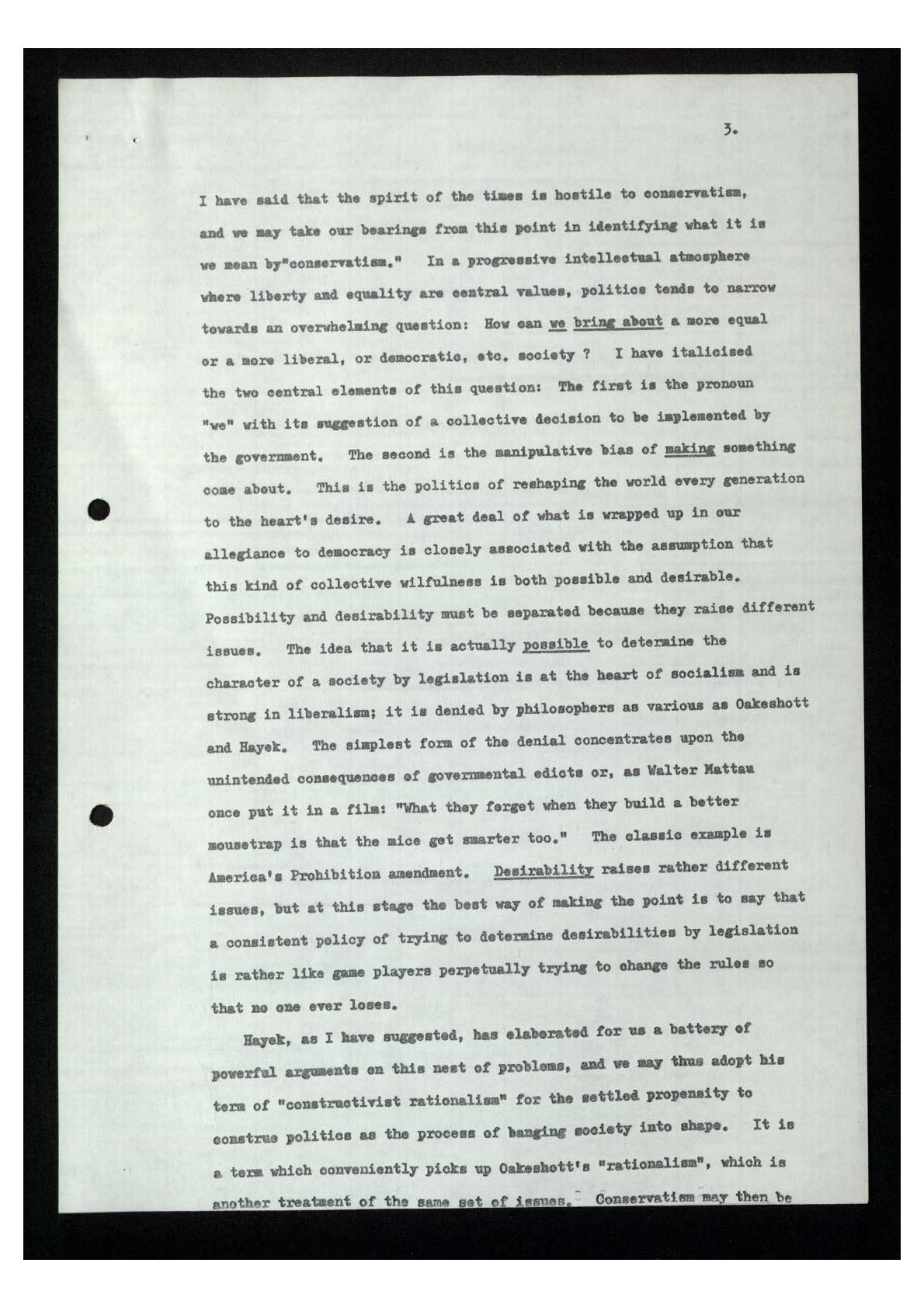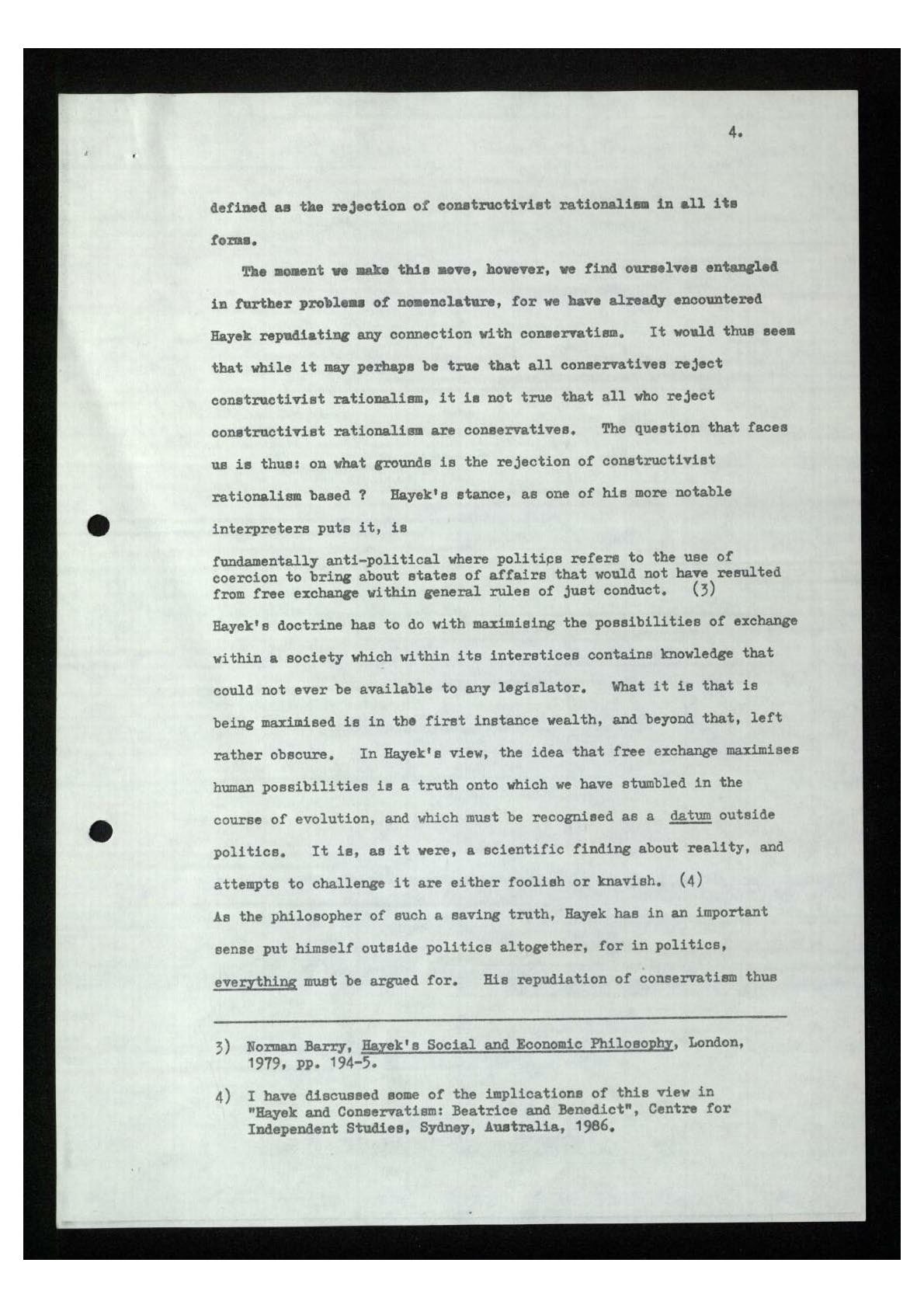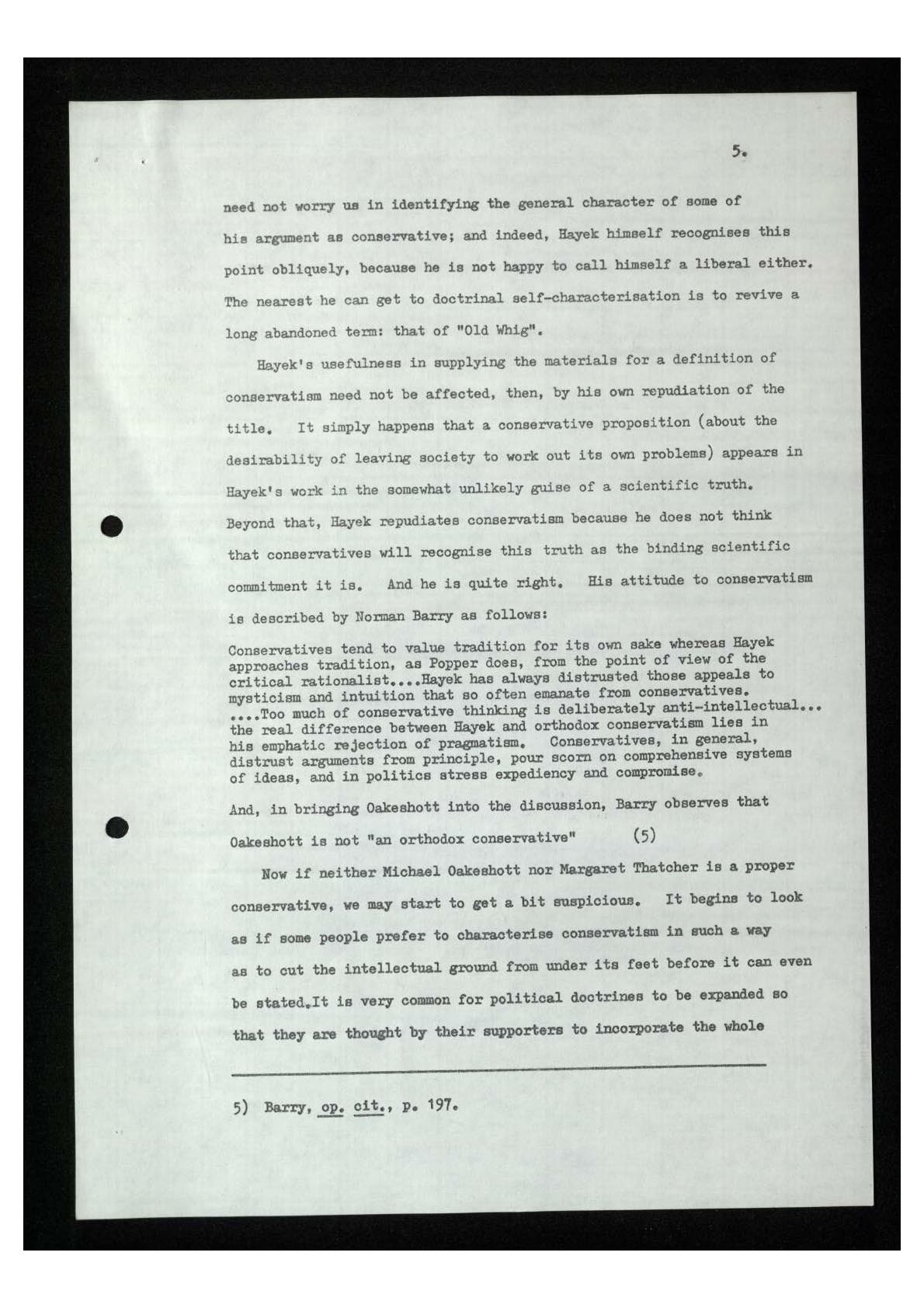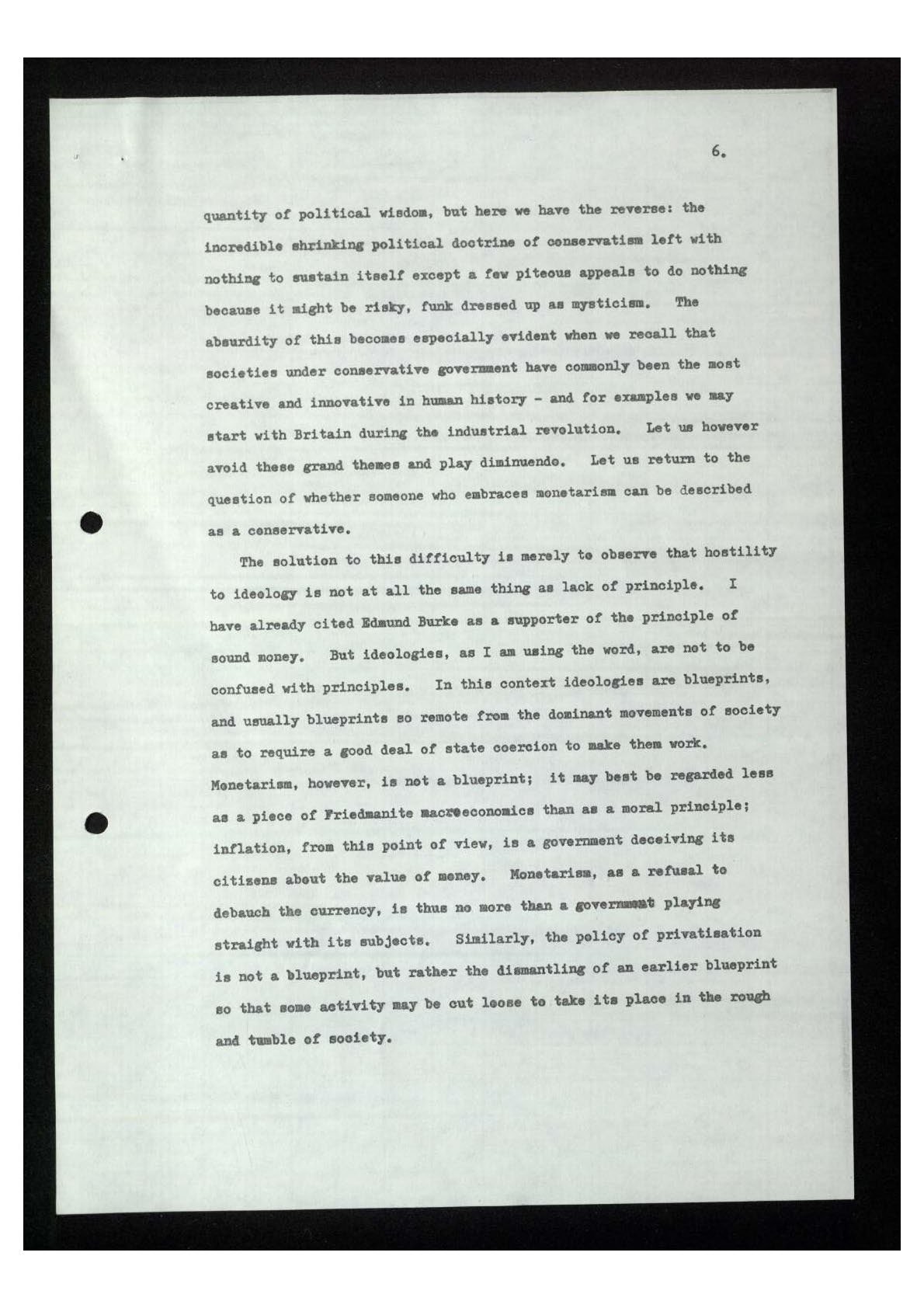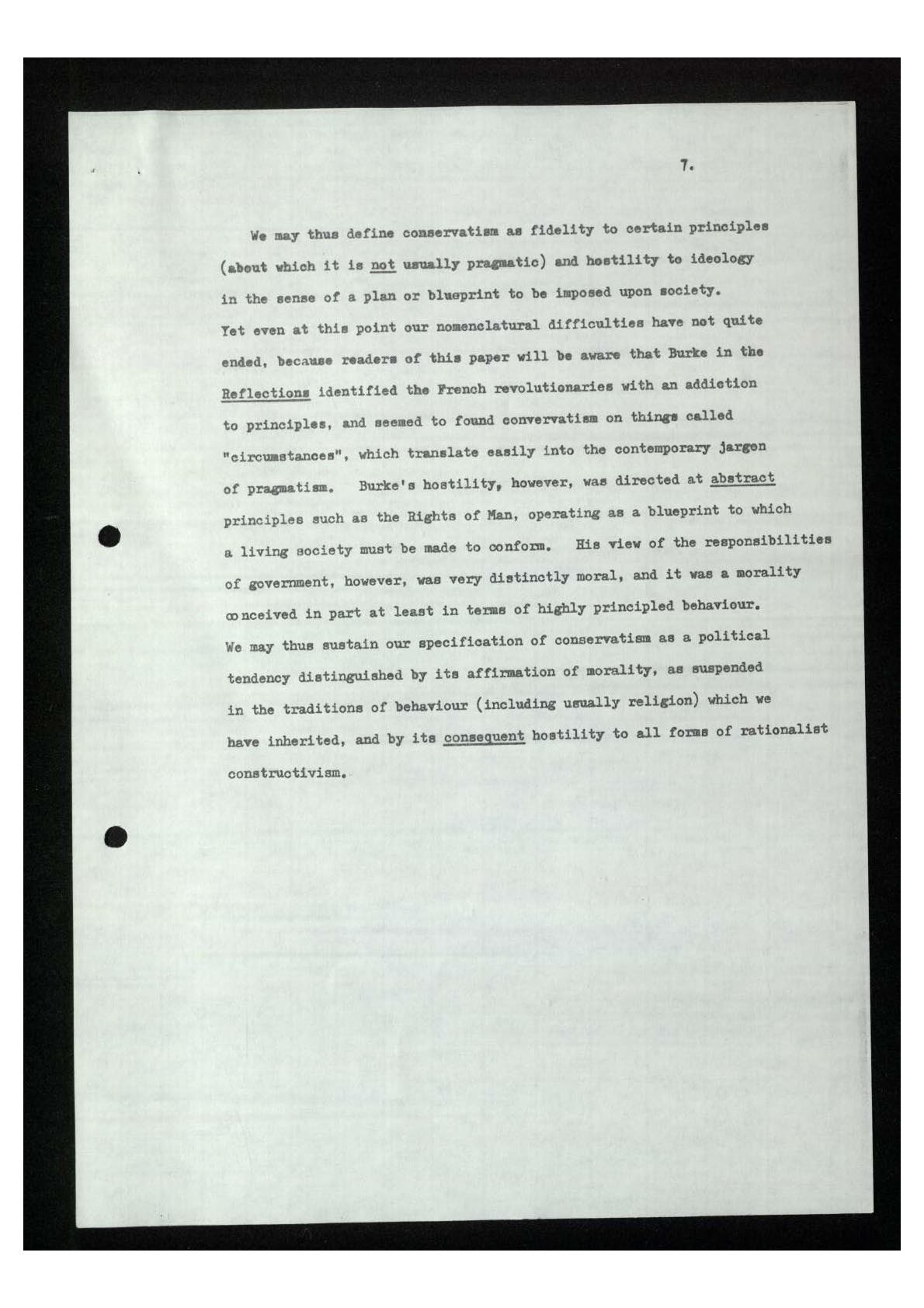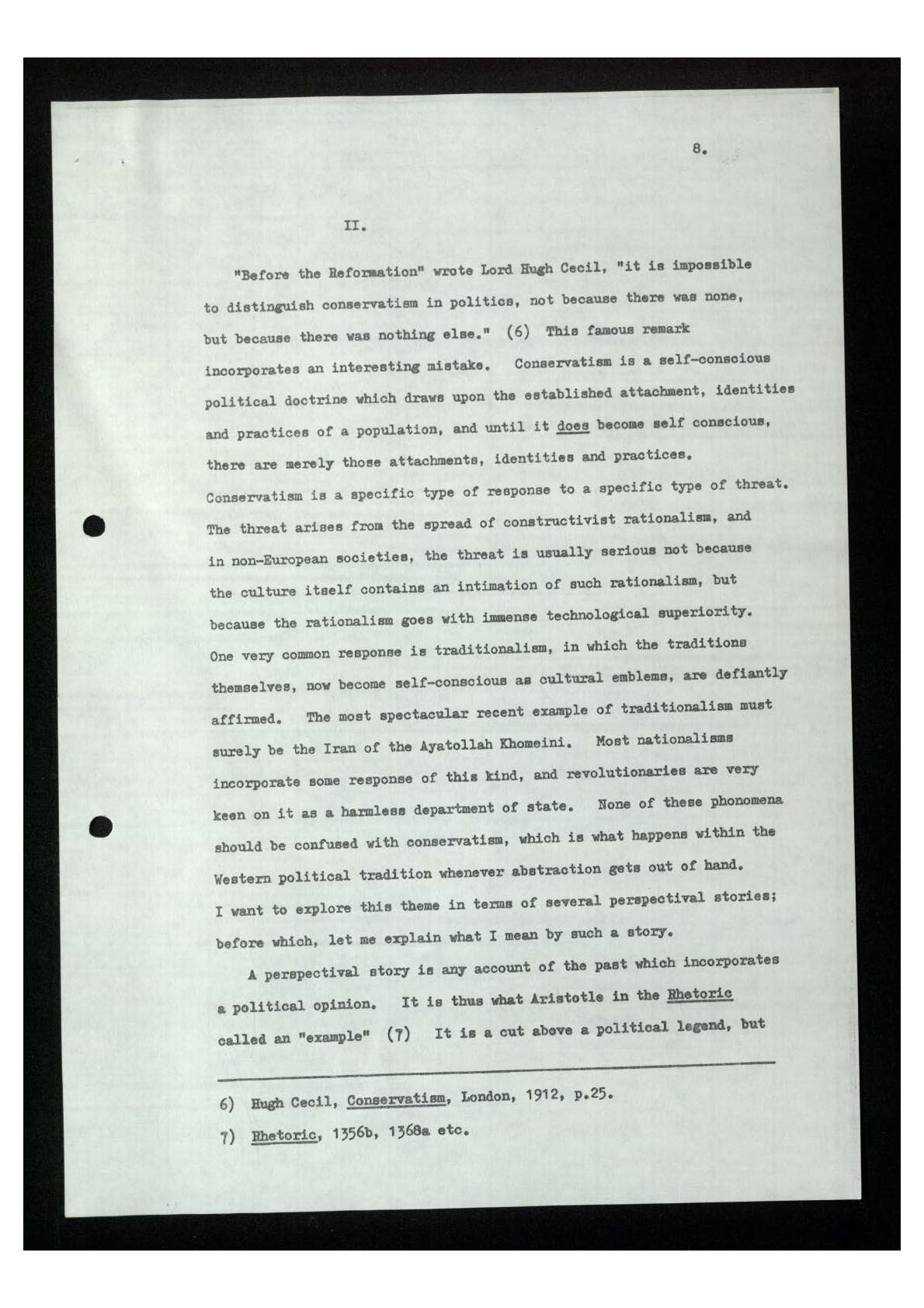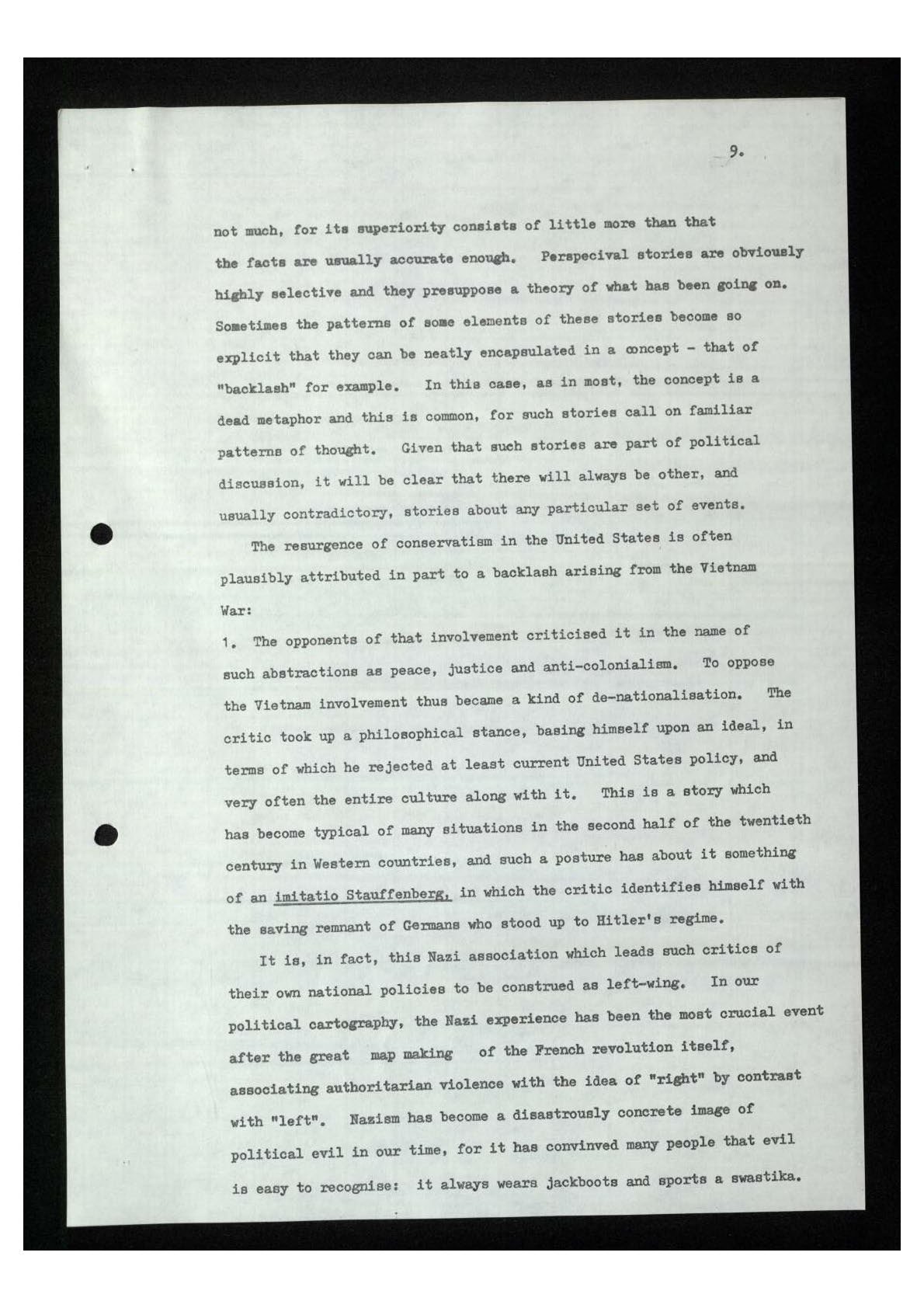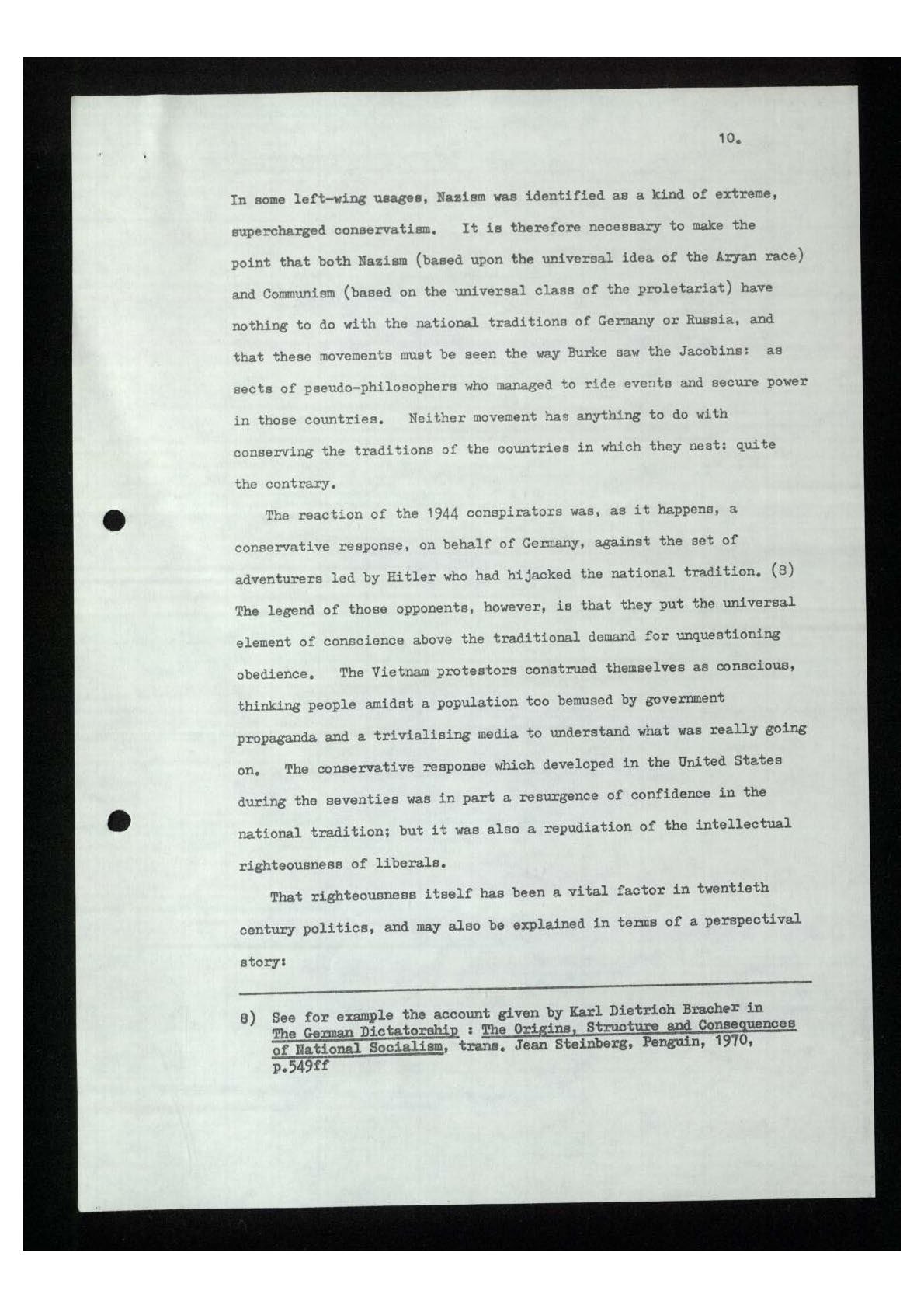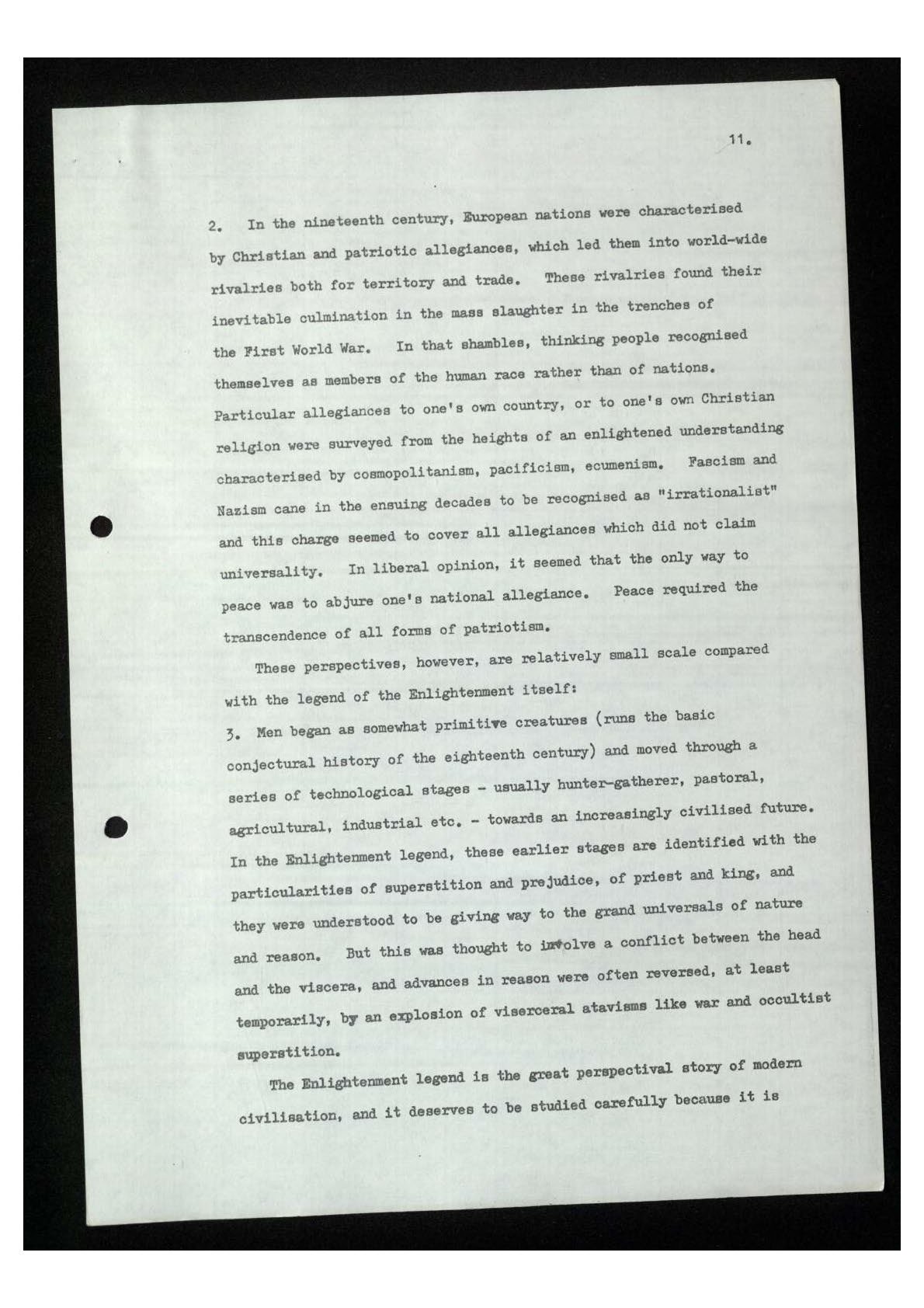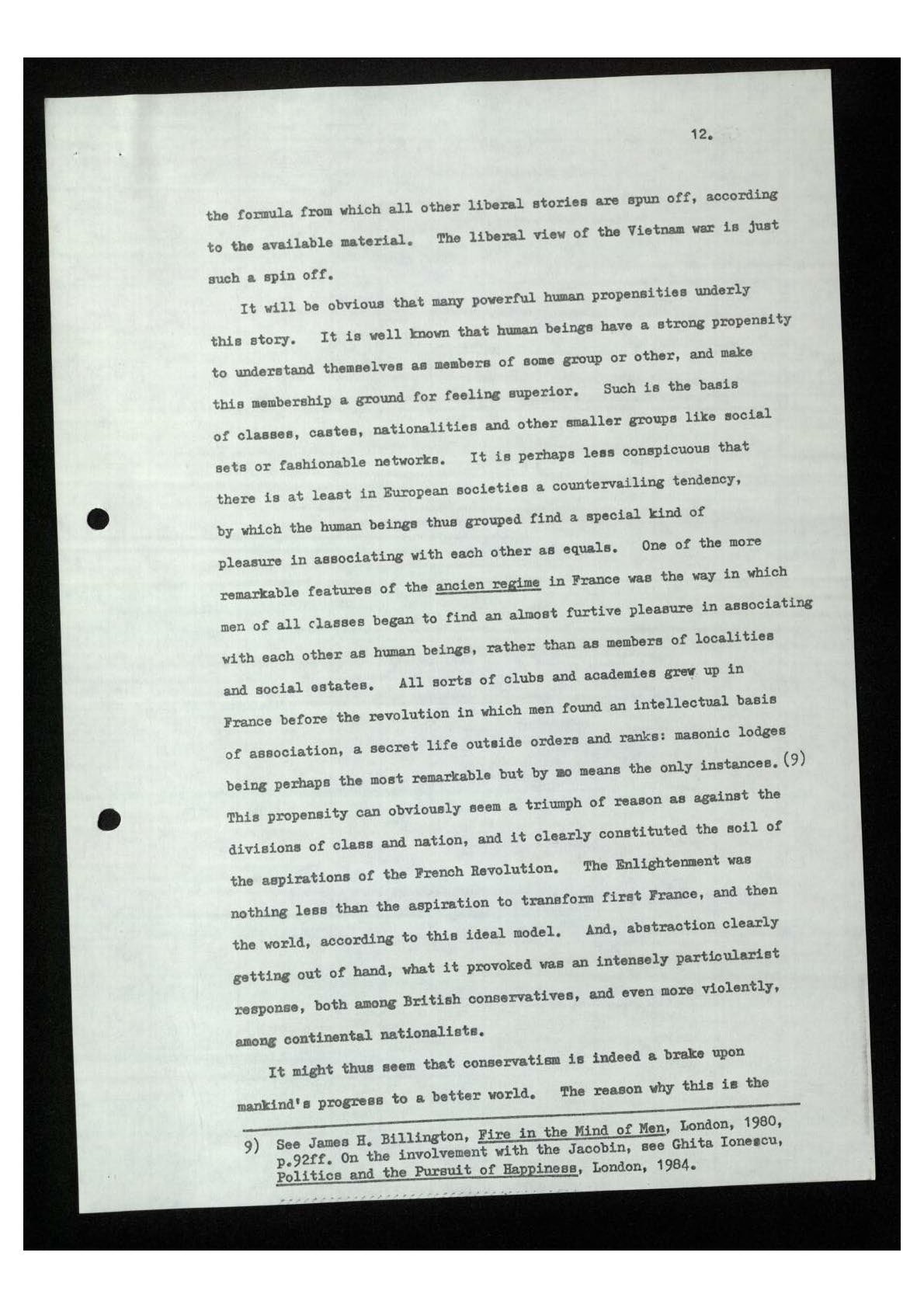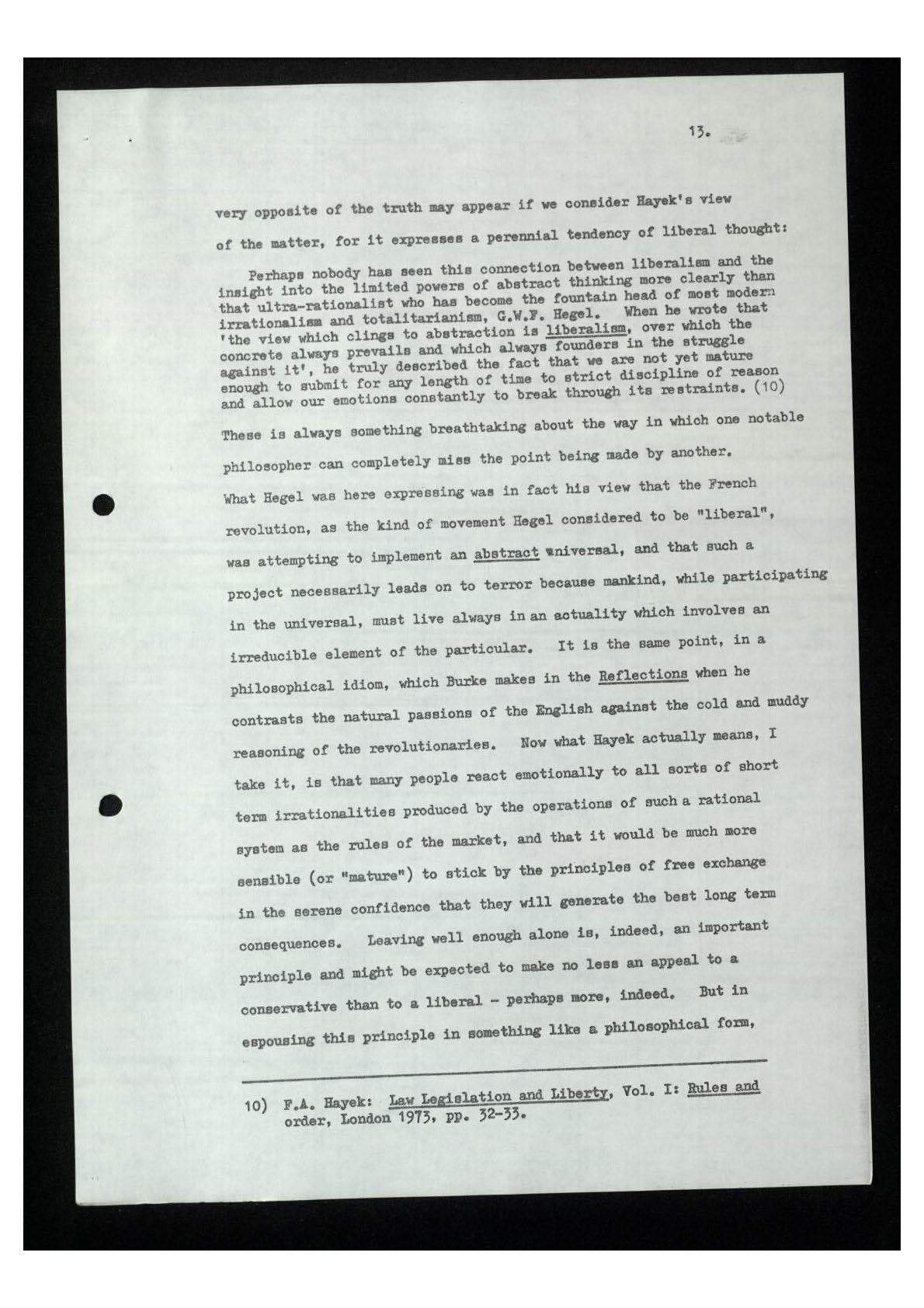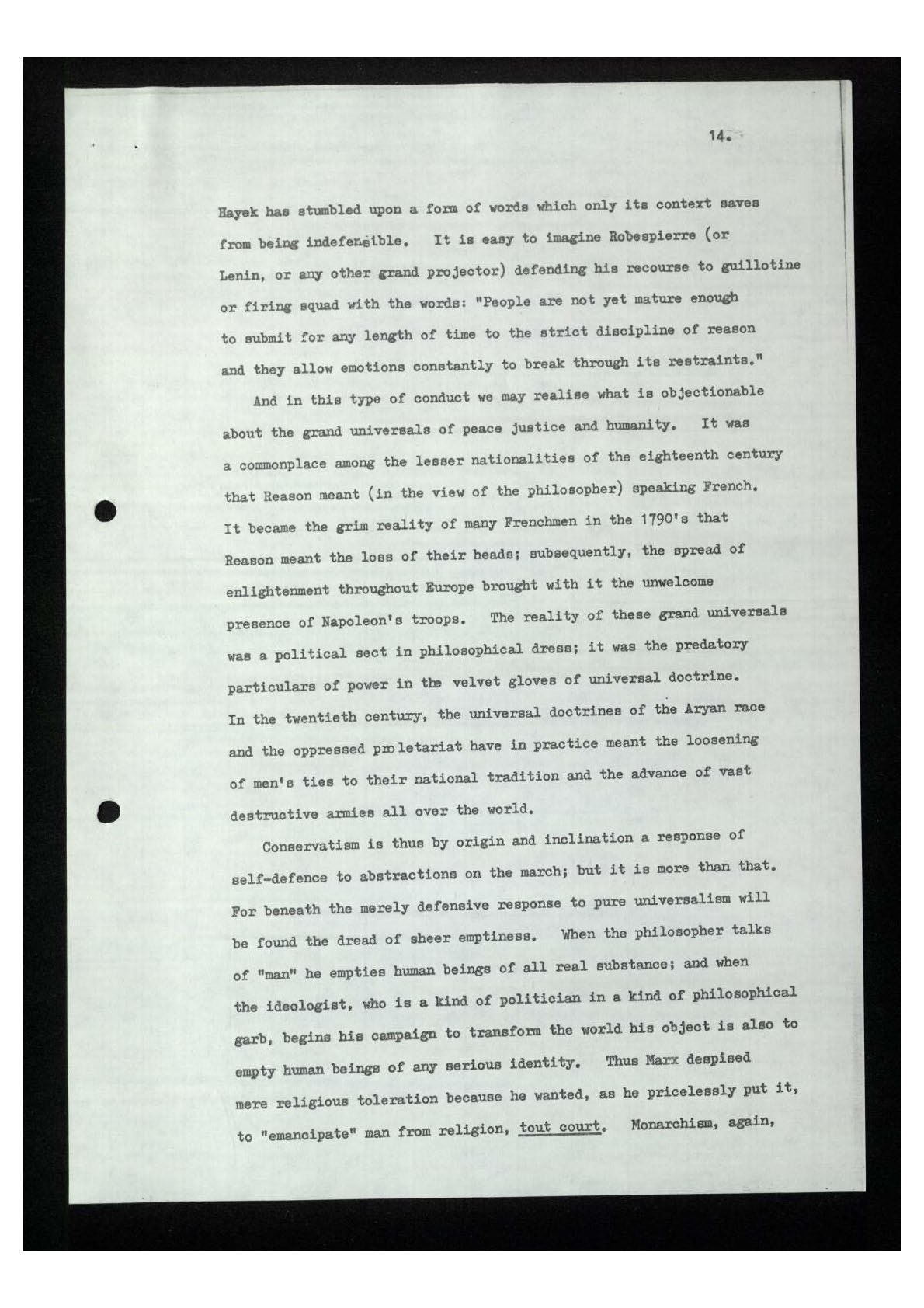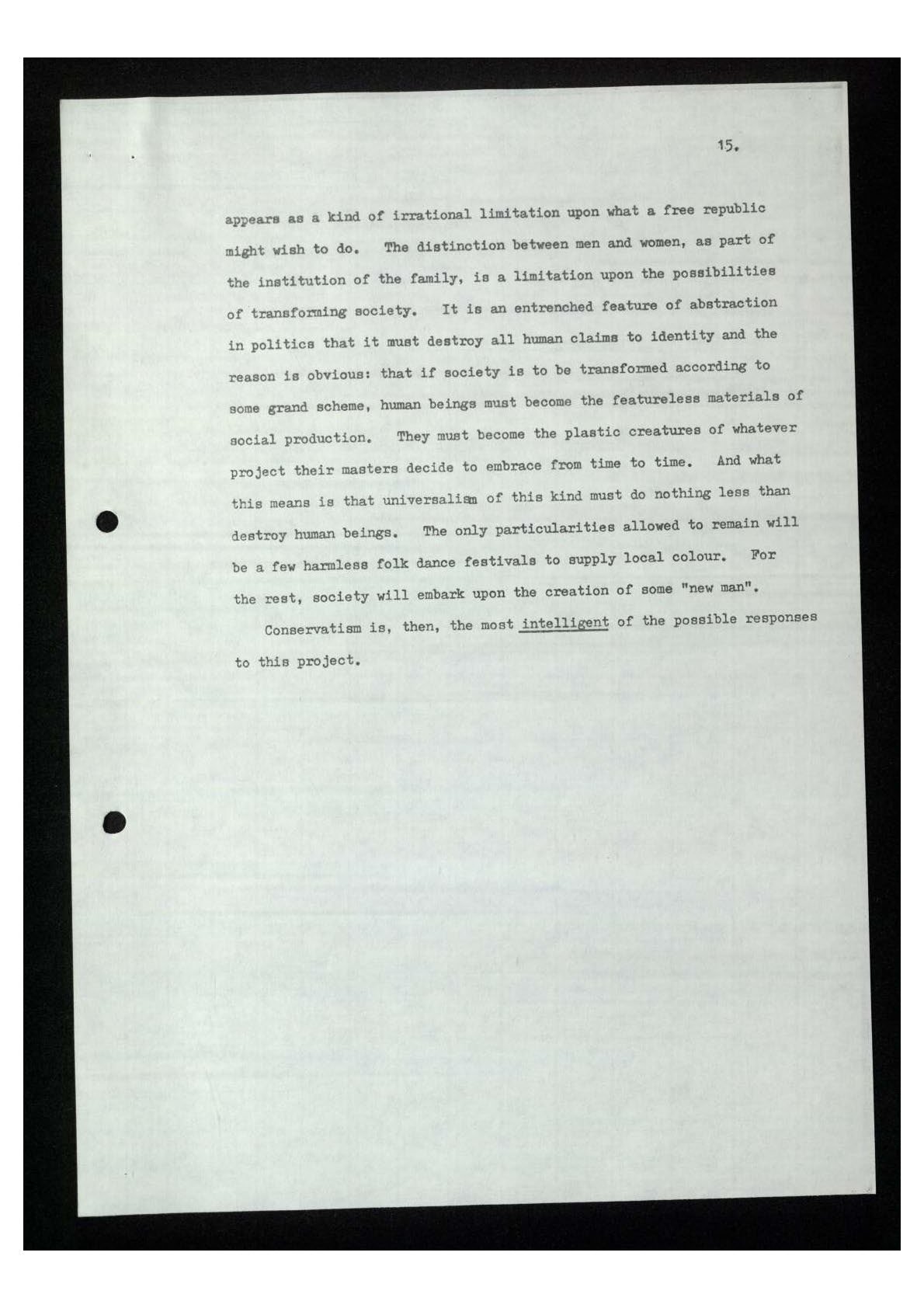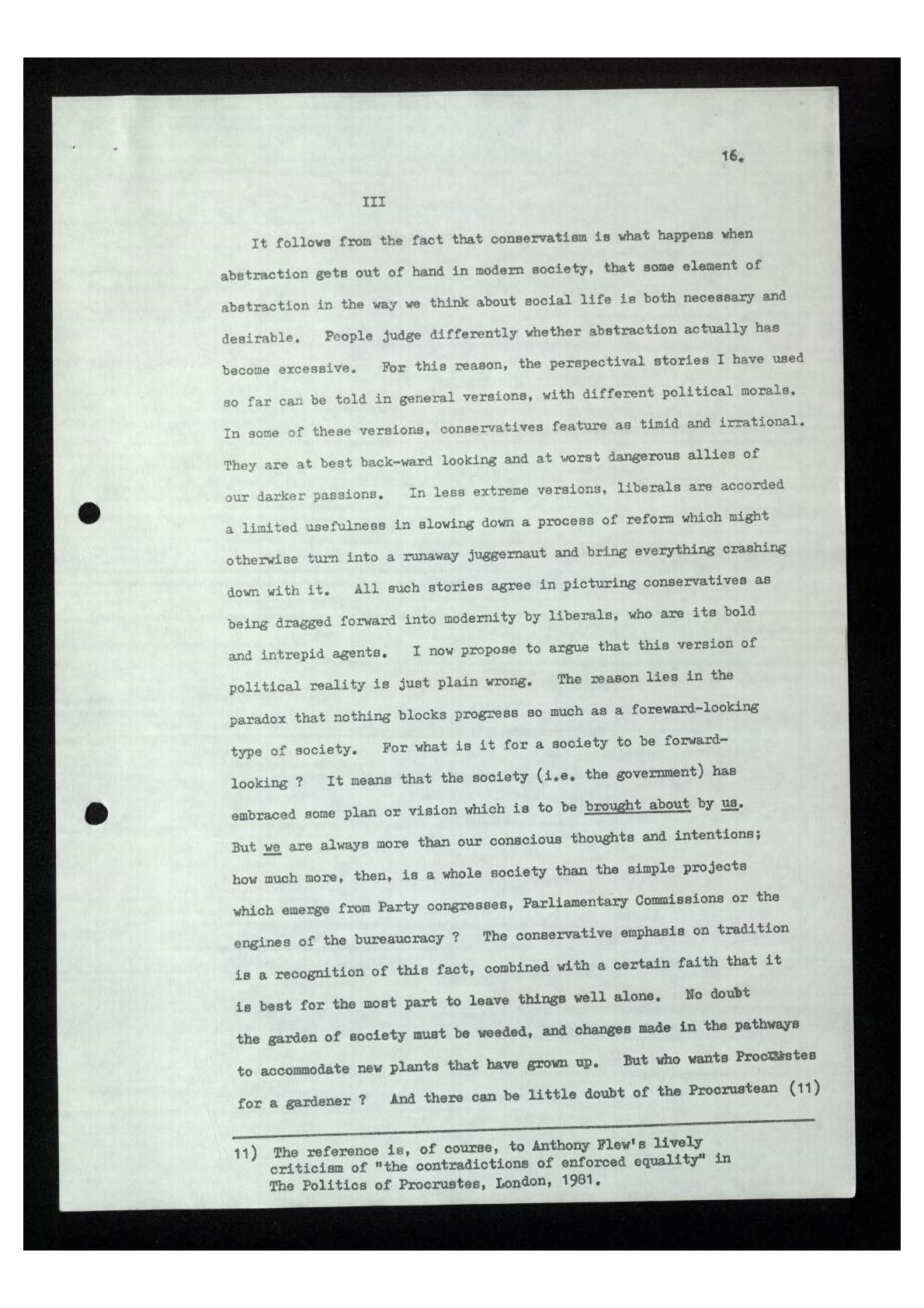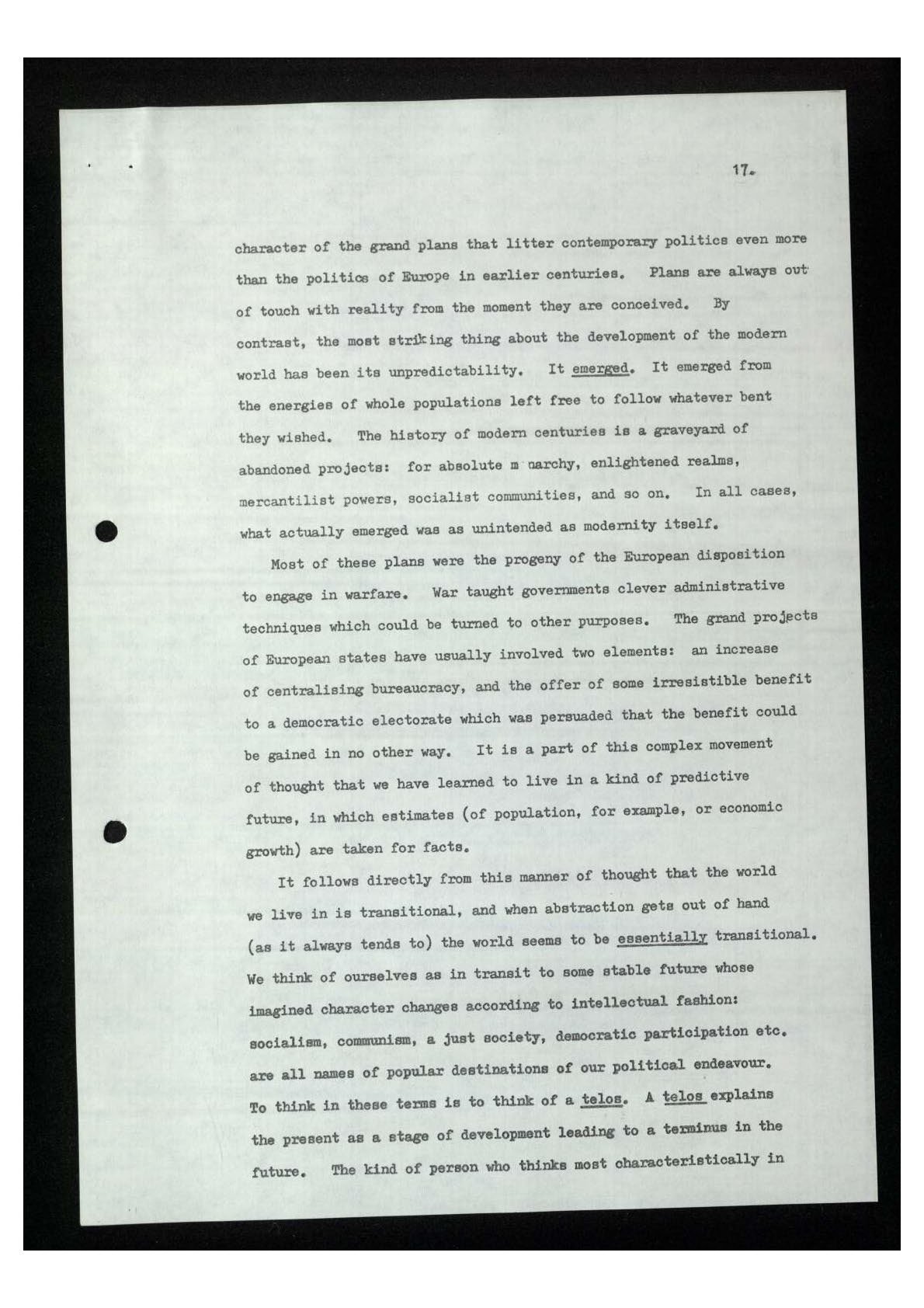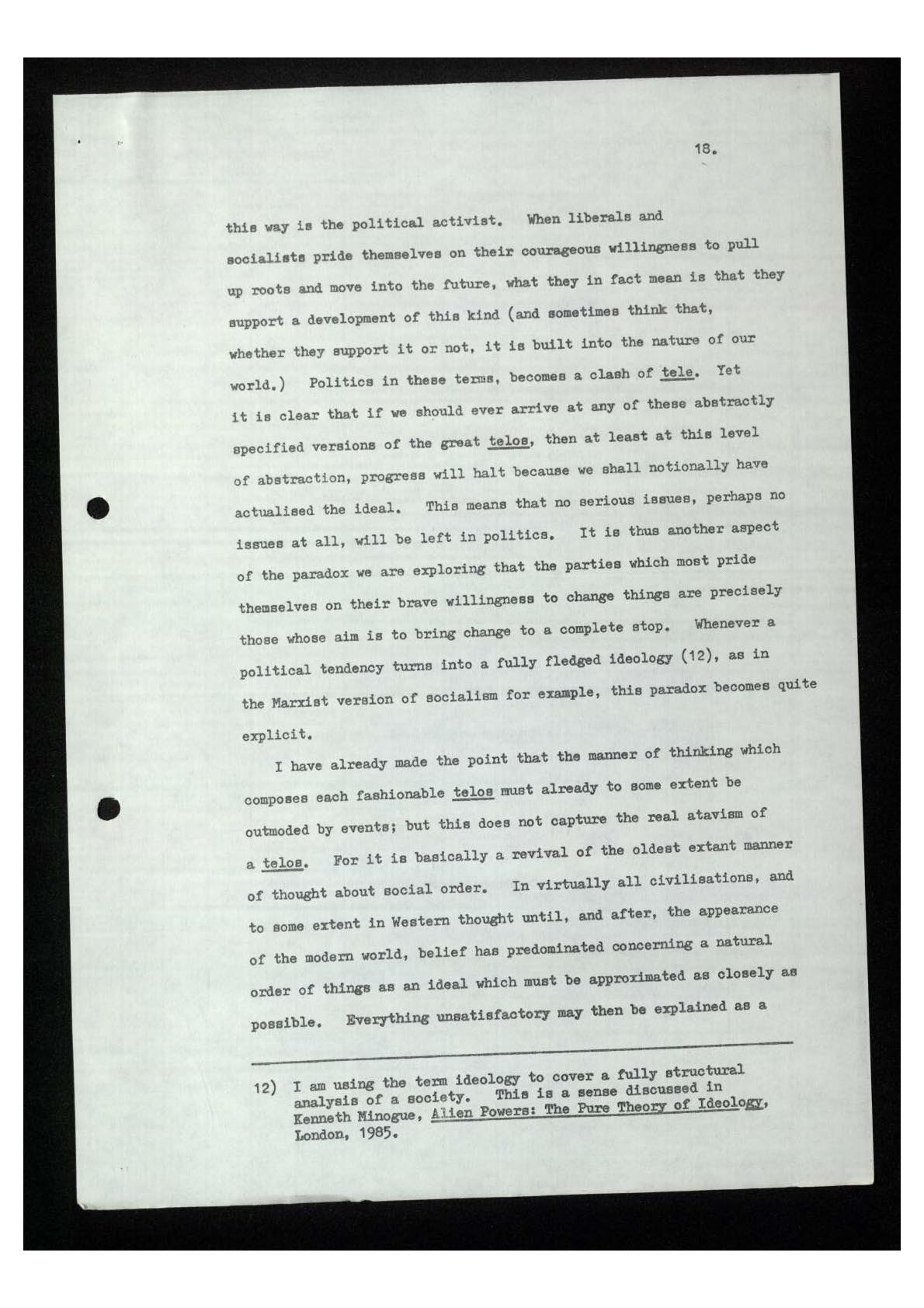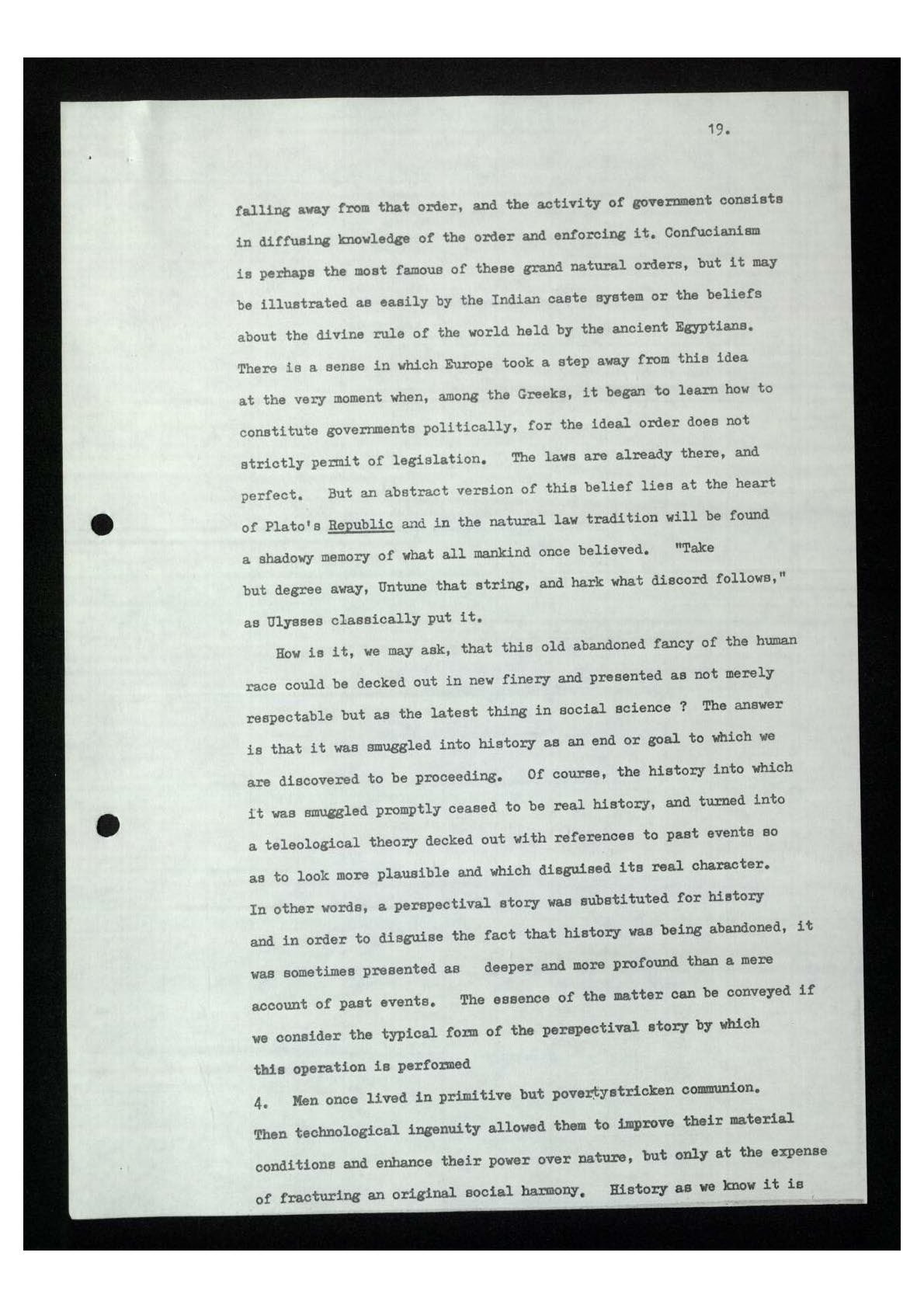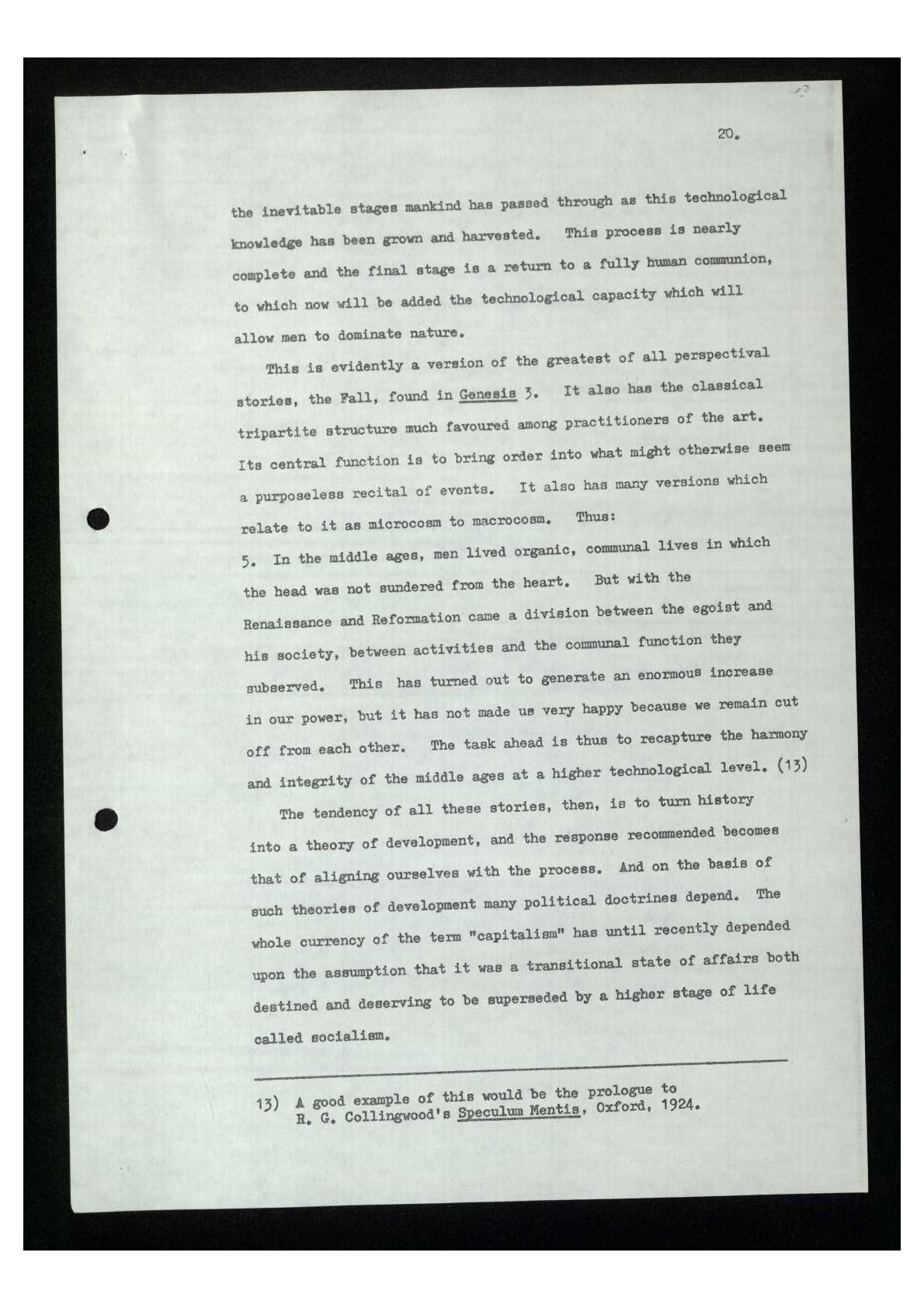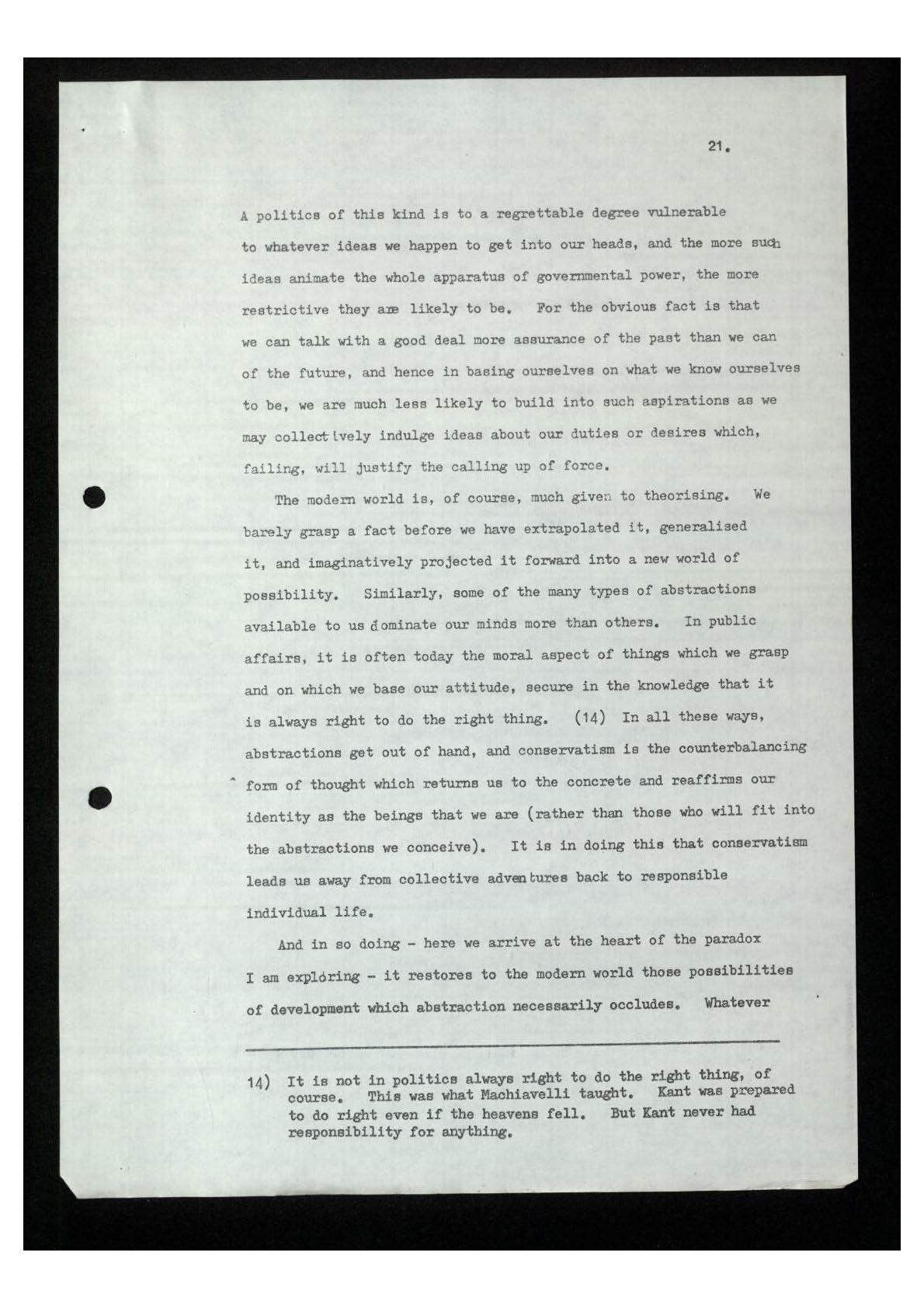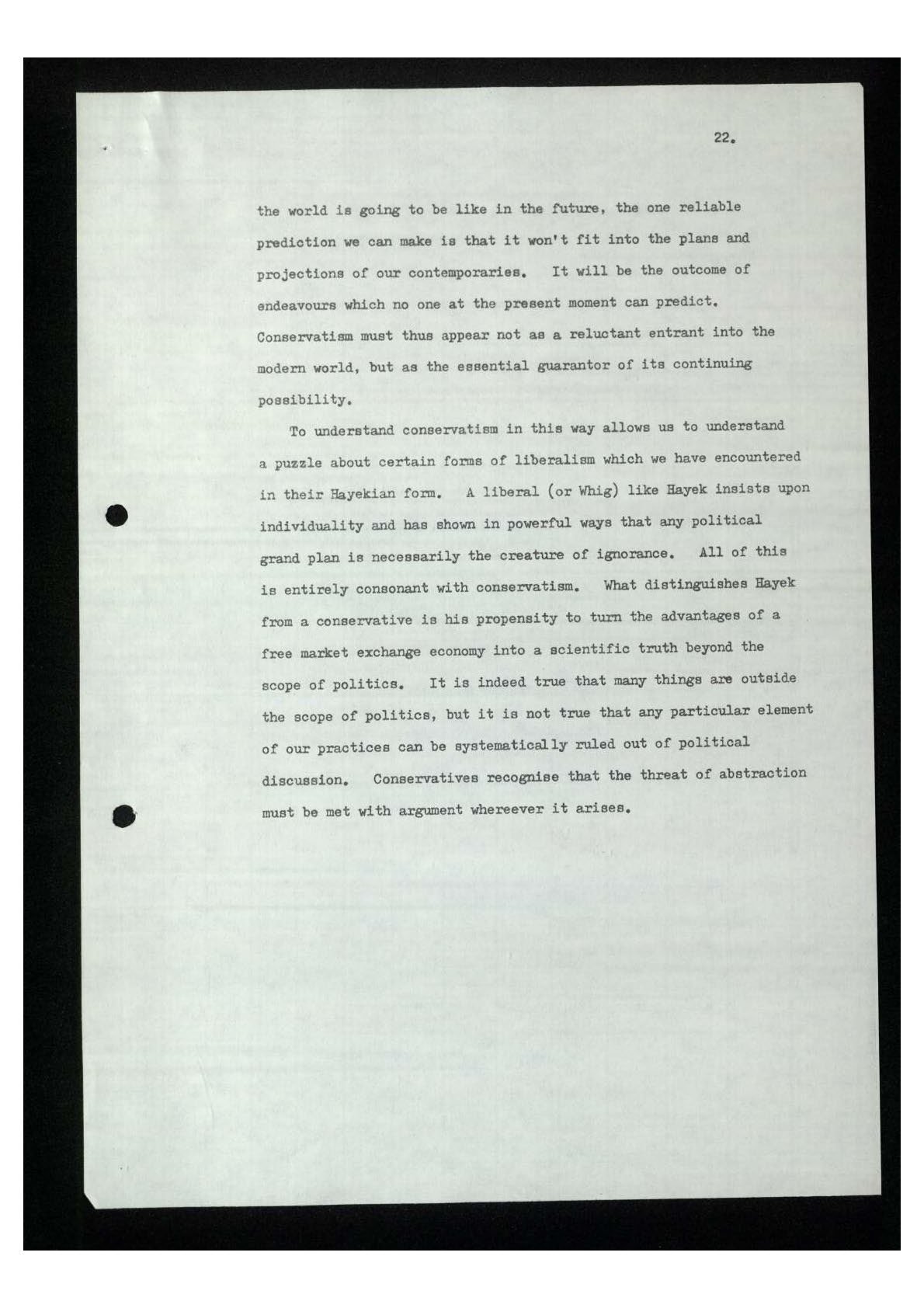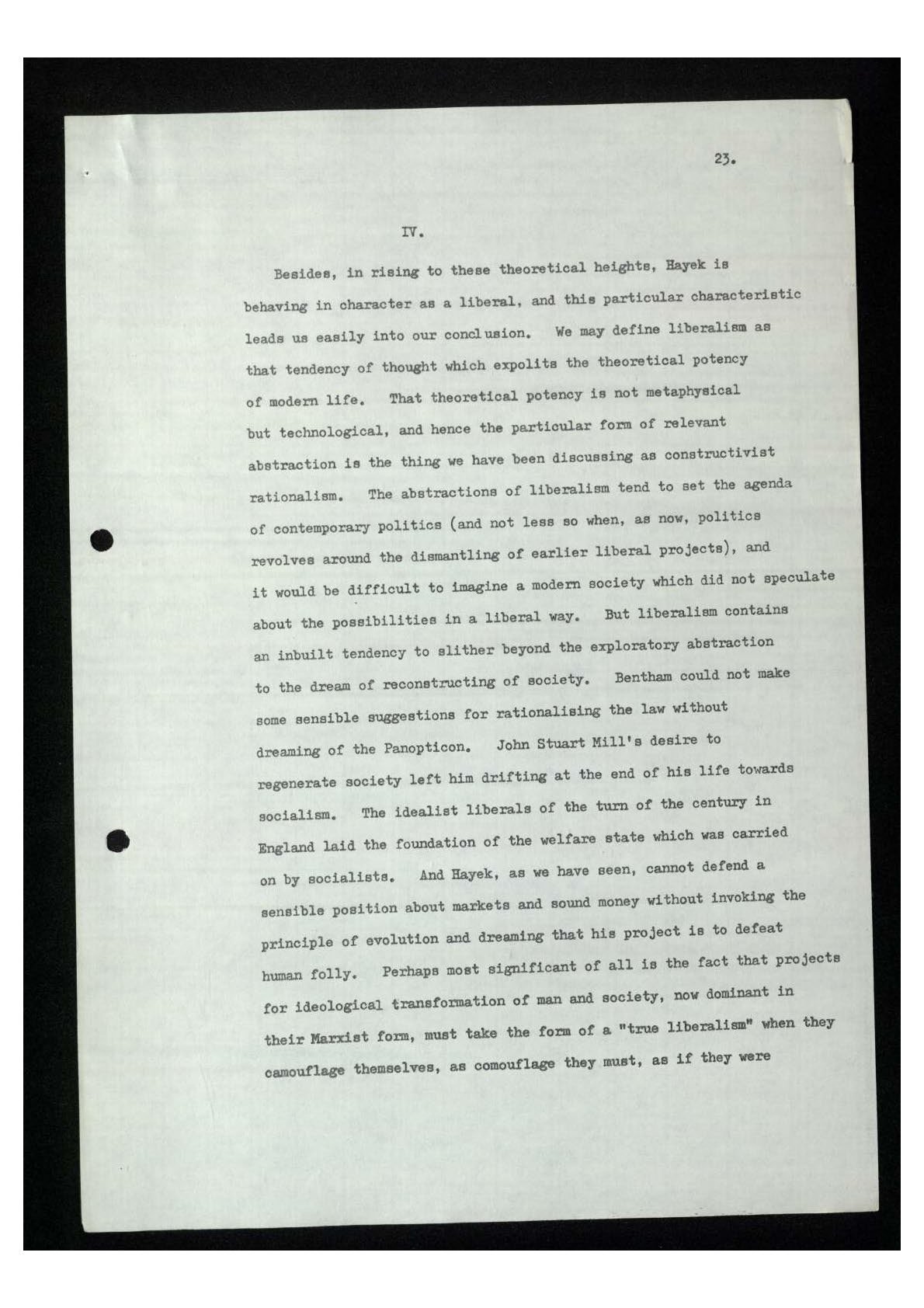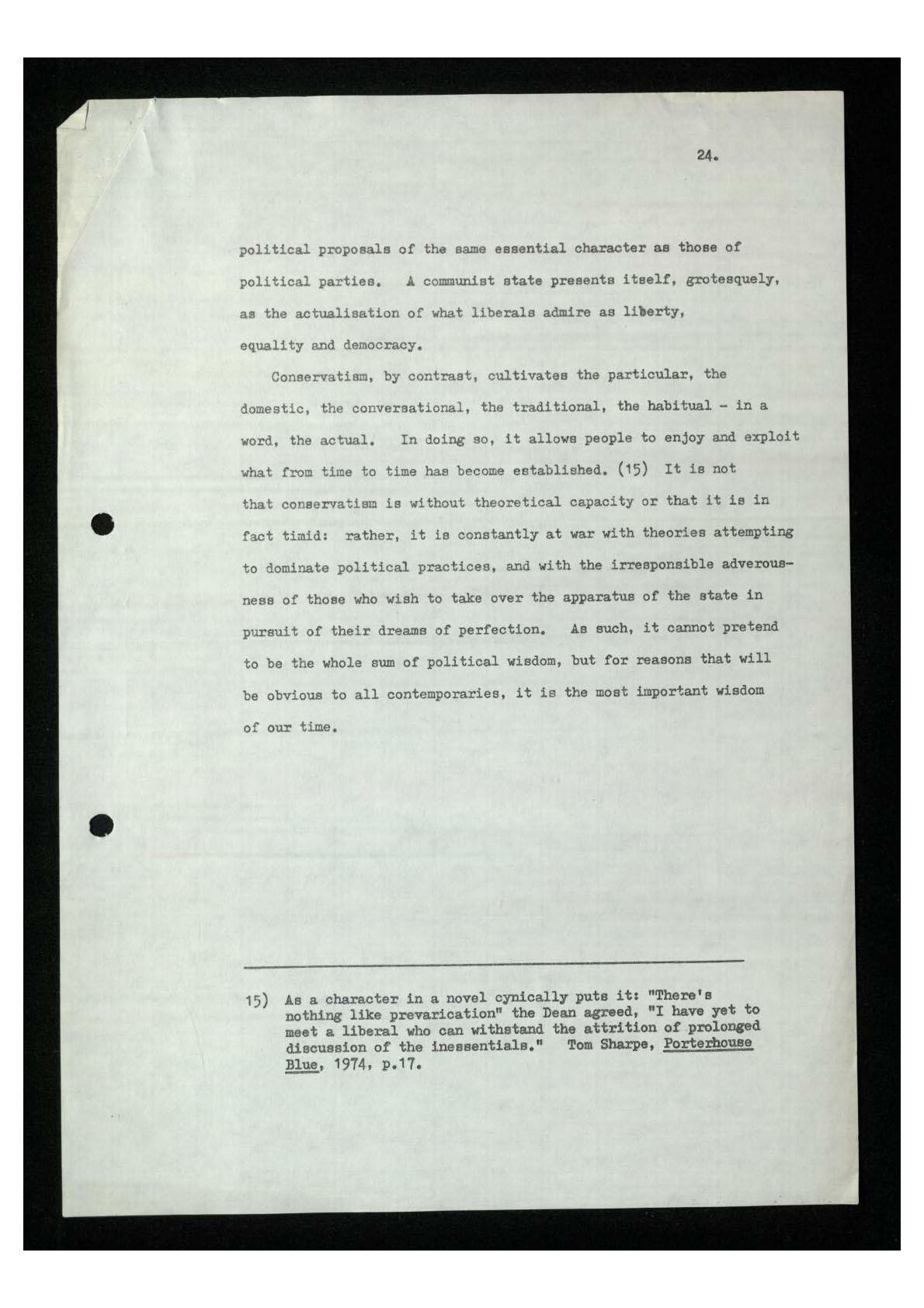The Roots of Twenty First Century Conservatism
Item No. 22.
Kenneth Robert Minogue
(1930-2013)
By Ojel L. Rodriguez Burgos
Kenneth R. Minogue (1930-2013) was a prominent political thinker whose academic career was defined by his affiliation with the London School of Economics and Political Science (LSE). Born in New Zealand, he later moved to Sydney, where he undertook undergraduate studies at the University of Sydney in the late 1940s and early 1950s. In 1951, Minogue again sought new surroundings and found a job as a cabin boy, sailing to London. Here he pursued an undergraduate programme in economics at LSE, and later his relationship with the school was cemented when Michael Oakeshott invited him to join the government department as a lecturer. Today, Minogue is not remembered by many except for a select cadre of conservative leaning individuals, which is surprising given his prominent role within British conservatism and the New Right in the second half of the 20th century .
Minogue was a conservative realist, drawing inspiration from sceptical thinkers such as Hume, Hobbes, and Oakeshott. He sought to position conservatism as a defence of the Western way of life and as a bulwark against ideological and rationalist pretensions. In this unpublished paper from 1986, titled 'The Roots of Twenty-First Century Conservatism’, Minogue, during the heyday of the New Right's political dominance, argues for the conservative realism that he believed underpinned the politics of the New Right. Minogue’s argument has four main points. First, he defends the conservative credentials of New Right politics, ably demonstrated by Margaret Thatcher. Second, he asserts that conservatism is a response to the failures of ideological projects. Third, he defends conservatism against Hayek's critique and, in doing so, distinguishes conservative realism from Hayekian liberalism. Finally, he situates conservatism as a defender of the individualist way of life in the modern West.
Thus, Minogue summarises the role of conservatism, writing: “Conservatism must thus appear not as a reluctant entrant into the modern world, but an essential guarantor of its continuing possibility” (1986, p. 22). In these words, Minogue offers sage advice for a world that is becoming increasingly hostile to the modern world and the individualist disposition that defines it.
Source: AEIL/Papers of Kenneth Minogue (ms39079/1/13)

